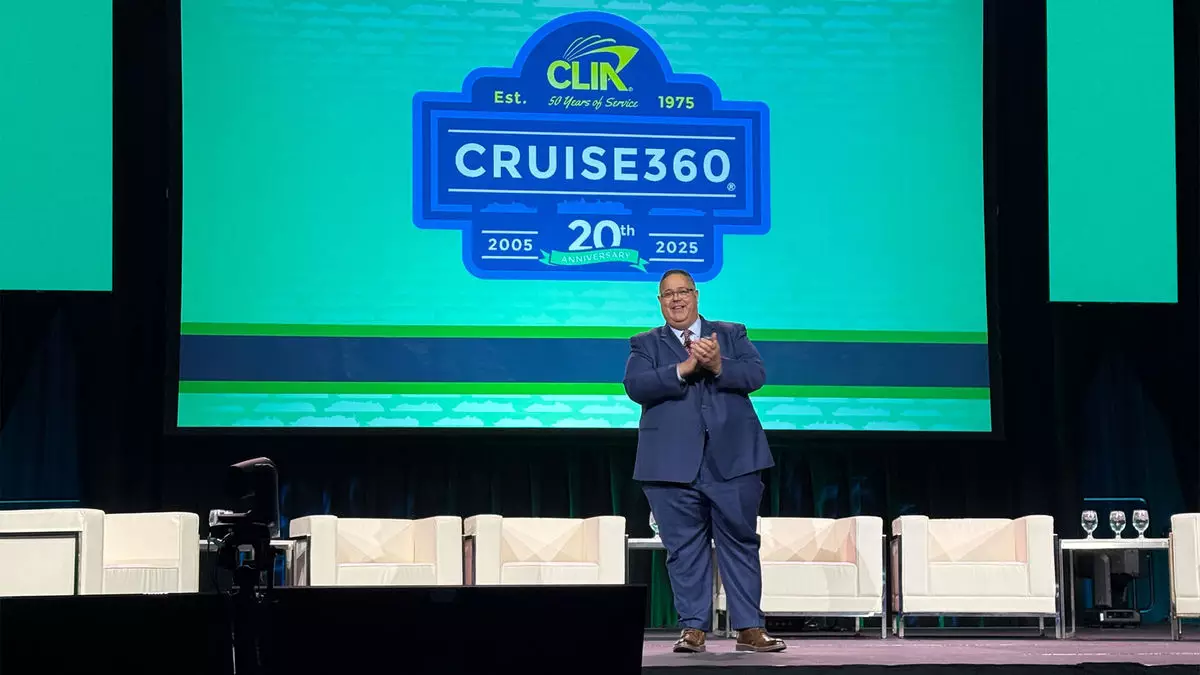In a pivotal shift for the cruise industry, the Cruise Lines International Association (CLIA) is embarking on a transformative journey that emphasizes collaboration with travel advisors and trade associations. During his inaugural address at the Cruise360 conference in April, CLIA’s CEO, Charles “Bud” Darr, unveiled a vision that positions travel advisors at the center of the cruise experience, recognizing their invaluable role as the predominant distribution channel for cruise lines. This approach is not merely about enhancing sales; it’s about nurturing relationships, fostering trust, and ultimately enriching the travel experiences of consumers.
Darr highlighted the essential support the organization intends to offer its members, indicating a robust commitment to empowering over 67,000 travel advisors within the CLIA membership. By actively seeking ways to work more closely with travel consultants, CLIA aims to create a synergistic relationship that boosts the overall perception and appeal of cruising. This partnership goes beyond traditional marketing tactics; it encapsulates a philosophy where collaboration is the cornerstone for future growth and innovation in the industry.
Harnessing the Human Touch in Travel Planning
Artificial intelligence and algorithm-driven platforms are gaining ground in various sectors of travel planning, yet Darr firmly believes that human intuition and knowledge cannot be replicated by machines. In a world increasingly leaning towards automated solutions, he emphasized that the personal touch provided by travel advisors is irreplaceable. This perspective reflects a deeper understanding of consumer needs—matching customers to the right cruise experience necessitates a comprehensive grasp of both individual preferences and available offerings.
Darr’s assertion resonates deeply in an era where travel can often feel transactional and impersonal. Moreover, by asserting that AI cannot replace the nuanced understanding that travel advisors possess, he appeals to a growing audience of travelers who yearn for personalized recommendations and curated experiences. It is a battle of the touchless convenience of technology versus the warmth of human connection—a battle that Darr believes the latter is destined to win.
Addressing Misconceptions with the “Cruise Actually” Campaign
In alignment with this revitalized focus on travel advisors, CLIA has announced the launch of its “Cruise Actually” campaign. This initiative aims to challenge entrenched misconceptions about cruising, especially among those who have yet to set foot on a ship. By providing travel advisors with ready-to-share social media assets, CLIA is equipping them to initiate conversations that could convert potential travelers into cruise enthusiasts.
The campaign’s clever conception was inspired by the beloved film “Love Actually,” underscoring the organization’s commitment to creativity and relatability in its outreach efforts. It represents a pivotal step towards bridging the gap between land-based travelers and the cruise experience, offering insights that can change perceptions and foster curiosity. By addressing myths directly, this campaign aims to pave the pathway for new cruisers, encouraging them to experience what has often been misconstrued.
Fostering Unity in the Travel Industry
Collaboration is a recurring theme in Darr’s vision for the future of cruising. His remarks about enhancing partnerships with trade associations such as the American Society of Travel Advisors (ASTA) reflect an eagerness to strengthen the industry’s foundation. Darr’s initial discussions with ASTA’s CEO, Zane Kerby, reveal a mutual understanding that a united front can significantly benefit all parties involved.
By actively engaging with these associations, CLIA is poised to enhance advocacy and representation for travel advisors, ensuring their voices are at the forefront of industry conversations. This alignment is not merely about support; it embodies a collective ambition for growth, aiming to maximize opportunities within the cruise sector while simultaneously enriching the advisor-to-client relationship.
Maximizing FOMO as a Driving Force
One intriguing takeaway from CLIA’s strategic direction is the emphasis placed on FOMO—fear of missing out. Charles Sylvia, the vice president of industry and trade relations, succinctly pointed out that this emotional trigger is crucial in motivating consumers to engage with travel advisors. In an age where social media is rife with experiences and visuals of far-off destinations, FOMO acts as both a challenge and an opportunity for advisors.
The notion that consumers should use travel advisors draws on the essence of advisory services—that navigators in the travel world can curate unique experiences that resonate with individual travelers’ desires. By promoting FOMO, CLIA is not only encouraging bookings but fostering a deeper connection between travelers and the rich tapestry of experiences that cruising has to offer.
The cruise industry is at a crossroads, with a bright future sustained by collaboration, innovation, and personalized experiences. Through efforts like the “Cruise Actually” campaign and enhanced partnerships with travel advisors, the potential for growth is boundless, ushering in a new chapter that prioritizes relationships and experiences over transactions.


Leave a Reply